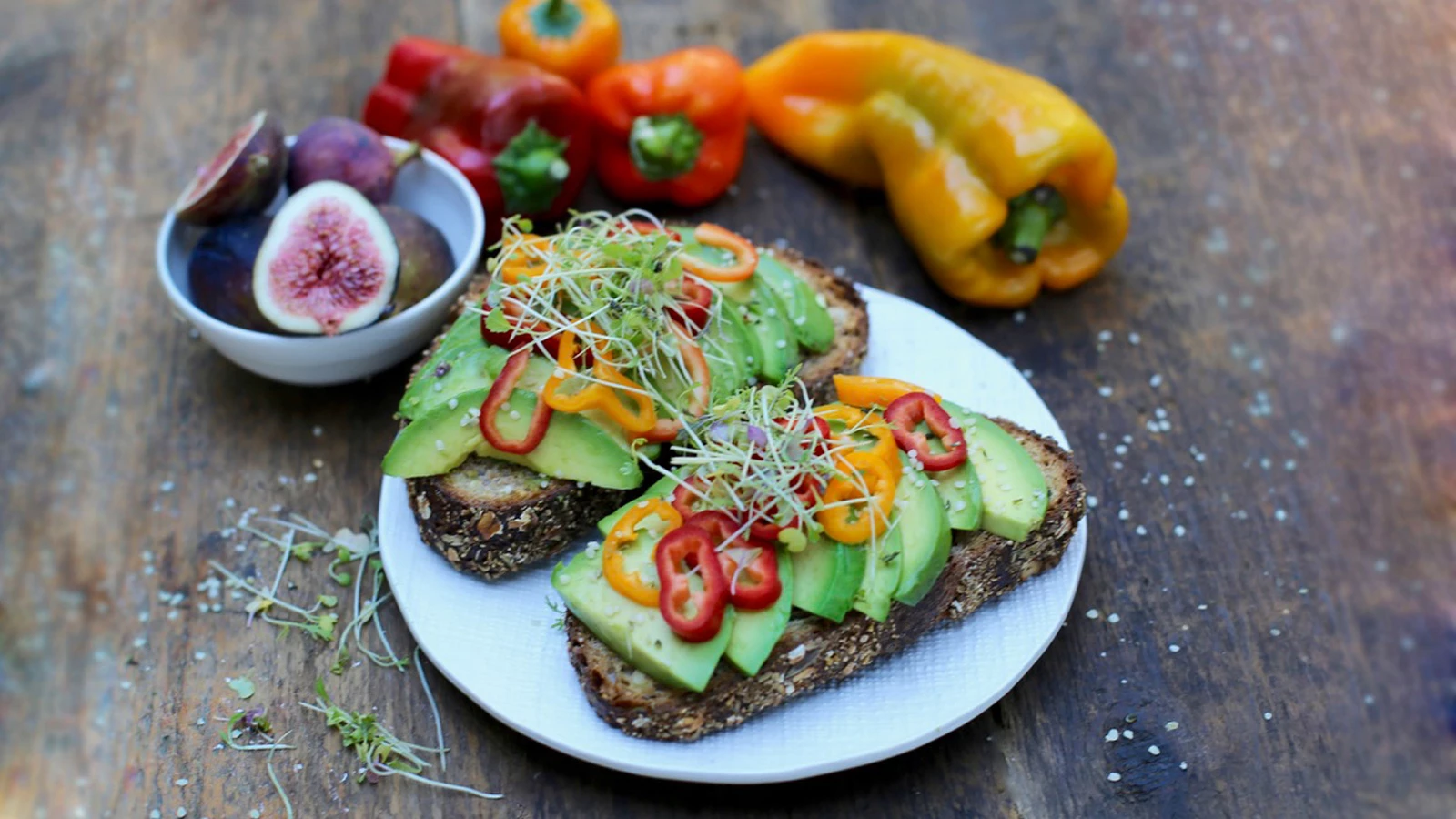Feeling Foggy? Try These 5 Brain-Boosting Habits You Can Start Right Now

Have you thought about your brain today?
No, really: with a jam-packed schedule and little time for ourselves, it’s almost too easy to forget all that our brains do for us on a daily basis. They’re the keepers of our crazy schedules, the moderators of our self-talk, and the engines that drive our bustling lives. I always say, “What you think is just as important as what you eat,” and nowhere is that more obvious than when our days (and calendars) start to get out of control.
While I’ve long known the importance of brain health and brain function on an academic level, it wasn’t until I suffered a concussion a few months ago that the idea of keeping my brain safe and well fed really hit home. Suddenly, the small tasks that usually took me no time at all seemed to occupy most of my day. I wasn’t just slower; I was unfocused and foggy. It was a wake-up call for me and made me appreciate the importance of my nutrition and lifestyle choices for my neural health.
But you don’t have to experience an injury to struggle with an overloaded brain operating at less-than-full capacity. So many of us suffer from burnout; as a culture, we are completely overwhelmed, deprived of the sleep and nutrients that we need to think clearly. While we often pay attention to boosting our energy, we tend to neglect the most basic driver thereof: our brains. Let’s change that!
It’s time to be proactive about caring for our brains and our bodies. The good news is that no matter what you have or haven’t done to support it, neuroplasticity gives the brain an amazing capacity to modify its connections and make changes any time we are ready. And it can happen quickly!
Recently, I had the pleasure of interviewing Dr. Drew Ramsey for a podcast. As a leader in the field of brain health, he believes that the building blocks of your brain—all the vitamins, minerals, fats, sugars, and proteins—begin at the end of your fork. There is growing research from some of the world’s most respected doctors that he’s right: targeted nutrition and lifestyle factors are the keys to boosting your mood, easing your anxiety, and sharpening your thinking. (And who couldn’t use a dose of that?)
Here are a few of my favorite ways to improve your brain health and your overall wellbeing:
Balance Your Blood Sugar
When you don’t give your brain the food it needs at regular intervals, you can spiral into negativity; unable to think clearly, you may make choices that you might feel guilty about later. And when we feel guilty about what we eat, our self-esteem plummets, sending us into a downward mental spiral. To avoid dipping into this red zone of clouded thinking, balance your macronutrients (proteins, carbs, and fats) every time you eat and don’t wait too long to refuel.
Brain-Boosting Foods
Here are some brain-boosting foods to help you feel like your best—and most energetic—self:
- Healthy fats, including avocado, nuts, seeds, and fatty fish, are key for supporting blood sugar balance and brain health. (Good news for guacamole, almond butter, and salmon lovers!)
- Greens, in kale dishes, collard wraps, and tossed into soups, will help keep your mental faculties sharp and focused.
- Anti-inflammatory spices—think garlic, turmeric, ginger, cinnamon, cloves, oregano, thyme, and rosemary, to name a few—can improve memory and reduce signs of cognitive decline.
- Known as an anti-stress mineral, magnesium levels in your cells stimulate serotonin production, which improves mood. Hemp seeds and chocolate are loaded with this nutrient!
Go with Your Gut 
If you’ve been here before, you know that your brain and belly are inextricably linked: your enteric nervous system (or ENS – the scientific term for your second brain) is made up of 100 million nerve cells in the walls of your digestive system, forming a “brain in the belly” that actively communicates with the 3-pound dome atop our necks (the ultimate command center for the nervous system). So it’s no surprise that our gut health and mood are connected. In fact, an estimated 90 percent of “feel-good” neurotransmitter serotonin is manufactured in our digestive tracts. In other words: when your gut is healthy, your brain is happy.
Try the colorful bowl that I created for The Microbiome Solution or this superfood Thai salad with an innovative probiotic-rich peanut butter dressing to nourish your “second brain.”
Stay Active 
Most of us know how important it is for aging family members to continue participating in activities that require those synapses in their brains to keep firing. In fact, it’s something we should all be doing, no matter our age, to optimize our brain health. So go on: sign up for that spin class, start training for that 5k, get out your yoga mat, or take your dogs for that extra walk this weekend. Studies have shown that exercise improves memory and thinking, so put down your phone, get off the couch, and get moving!
(And when you get back, whip up this mood-boosting Matcha Tea Latte. Your brain and your body will thank you!)
Give It a Rest
I talk about slowing down a lot, but as humans in the 21st century, we can always use another reminder. Just like athletes take recovery days and many religions require a day of rest, our brains need downtime to reset and recharge, in order to keep functioning at their best. Practice mindfulness meditation; take a break to color; spend time appreciating the sunset (without your phone!). There are countless ways to get quiet and centered without actually meditating, from chopping veggies (my personal pick) to a quiet walk in the woods. Choose your preferred slow-down and indulge often.
See? Brain health doesn’t have to be complicated. Even small, intentional shifts in your energy can instantly change your mood and begin to transform your brain, your health, and your life.
Now it’s your turn: How do you care for your precious brain in this wired-to-the-nines world? Share your favorite brain-boosting snacks, mindful activities, and ways to unplug in the comments. Let’s inspire one another to think about our brains!
Read more healthy brain tips from writer, Jennifer Williams-Fields – 8 Tips for a Healthy Brain.
Want to learn more about yoga and healthy digestion? Study with YogaUOnline and Dr. Baxter Bell – Yoga for Digestive Health.
Reprinted with permission from Kale and Chocolate

Elise Museles is an attorney turned Certified Eating Psychology & Nutrition Expert and creator of Kale & Chocolate. A writer, speaker, teacher and healthy lifestyle advocate, she empowers people to reset their relationship with food & their bodies—by creating a happy, healthy, and ridiculously delicious Food Story. Elise is also the author of the newly released book, Whole Food Energy, (Barron’s Educational Series, January 2016) and shares daily inspiration (and mouth-watering photos!) on FaceBook and Instagram.



